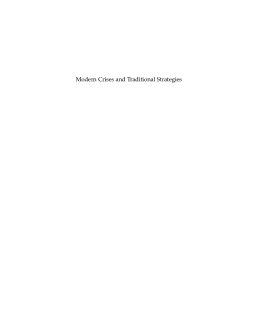
Additional Information
Book Details
Abstract
The 1990s have seen a growing interest in the role of local ecological knowledge in the context of sustainable development, and particularly in providing a set of responses to which populations may resort in times of political, economic and environmental instability. The period 1996-2003 in island southeast Asia represents a critical test case for understanding how this might work. The key issues explored in this book are the creation, erosion and transmission of ecological knowledge, and hybridization between traditional and scientifically-based knowledge, amongst populations facing environmental stress (e.g. 1997 El Niño), political conflict and economic hazards. The book will also evaluate positive examples of how traditional knowledge has enabled local populations to cope with these kinds of insecurity.
"Probably more than any other British anthropologist, Roy Ellen is associated with the study of ethnobiology; his has also long ranked among the leading names in the field... Both readers new to Ellen as well as those already familiar with his work will find this collection rewarding." · American Anthropologist
Roy Ellen was educated at the London School of Economics and is Professor of Anthropology and Human Ecology at the University of Kent at Canterbury, where he has taught since 1973. His numerous and varied publications include Environment, Subsistence and System (Cambridge University Press, 1982), The Cultural Relations of Classification (Cambridge University Press, 1993), and most recently, The Categorical Impulse (Berghahn Books, 2005). He convenes the Kent Programme in Ethnobotany and has published widely on indigenous knowledge. In 2003 he was elected to a fellowship of the British Academy.
